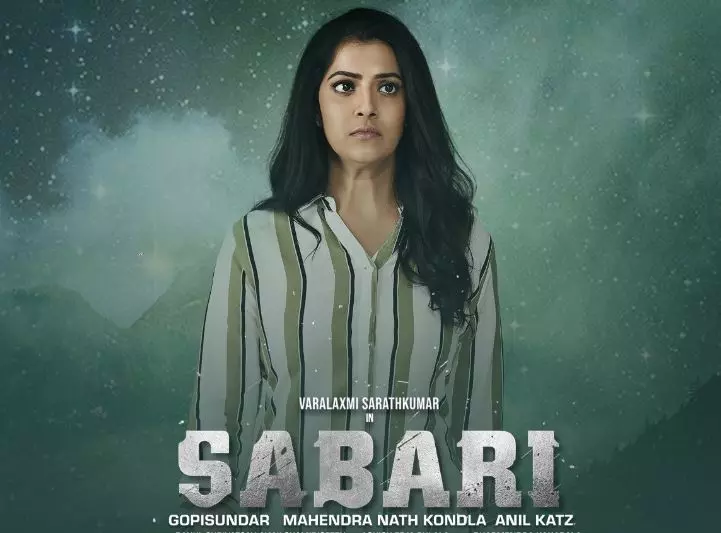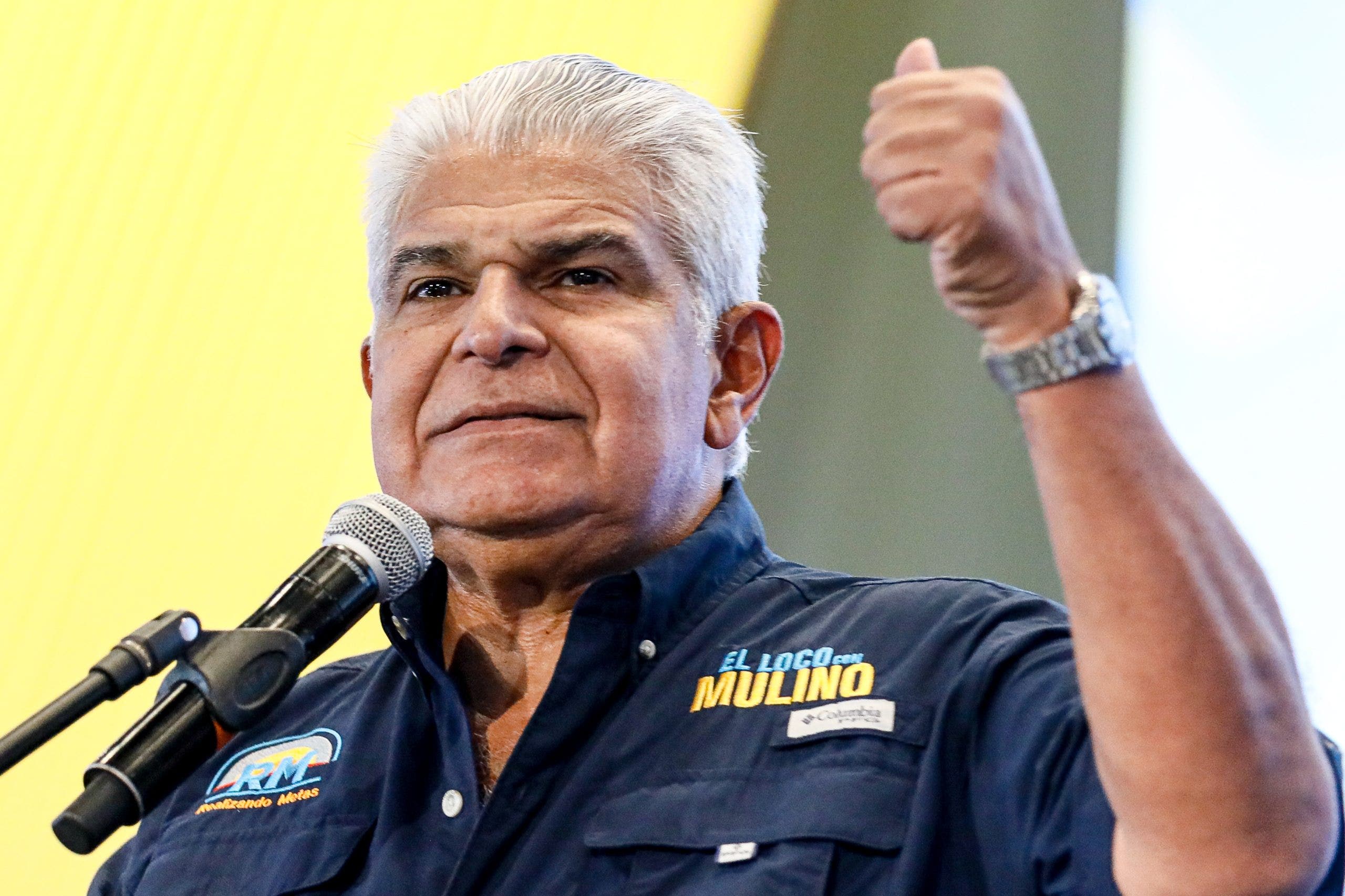Austin, TX
Groups sue over new Texas law that lets police arrest migrants who enter the US illegally

AUSTIN, Texas (AP) — Civil rights organizations on Tuesday filed a lawsuit challenging the constitutionality of a new Texas law that would allow police to arrest migrants who cross the border illegally and permit local judges to order them to leave the country.
The lawsuit, filed in federal court in Austin, argues that the measure that is set to take effect in March is unconstitutional because the federal government has sole authority over immigration.
The American Civil Liberties Union, its Texas branch, and the Texas Civil Rights Project sued less than 24 hours after Republican Gov. Greg Abbott signed the measure during a ceremony on the U.S.-Mexico border in Brownsville.
The civil rights groups filed the lawsuit on behalf of El Paso County and two immigrant aid groups seeking to block enforcement of the measure, known as SB 4, and declare it unlawful.
“S.B. 4 creates a new state system to regulate immigration that completely bypasses and conflicts with the federal system,” the lawsuit states.
The lawsuit was filed against the head of the Texas Department of Public Safety, whose troopers could arrest migrants, and the El Paso County district attorney, whose office would potentially prosecute cases in that border community.
A DPS spokesperson declined to comment in an email Tuesday, citing the pending litigation. A person who answered the phone in Hicks’ office said he was not available and had no immediate comment.
Abbott and other Texas Republicans who support the measure say President Joe Biden isn’t doing enough to control the 1,950-mile (3,149-kilometer) southern border.
“In his absence, Texas has the constitutional authority to secure our border through historic laws like SB 4,” Abbott said in an email Tuesday, adding that he was willing to take the case to the Supreme Court.
White House press secretary Karine Jean-Pierre criticized the law, but wouldn’t say whether the Justice Department would also challenge it.
“This is an extreme law that will not and does not make the communities in Texas safer,” Jean-Pierre said. She added that the purpose of the law was to “demonize immigrants and also dehumanize immigrants” and said “communities should not be individually targeted and put into harm’s way.”
According to Tuesday’s lawsuit, DPS Director Steve McGraw told lawmakers that his agency estimates approximately 72,000 arrests will be made each year under the measure.
The law comes as the U.S. is seeing an increase in illegal border crossings. Customs and Border Patrol acting commissioner Troy Miller called the number of daily arrivals “unprecedented,” as illegal crossings have topped 10,000 on some days this month.
The measure allows any Texas law enforcement officer to arrest people who are suspected of entering the country illegally. Once in custody, they could either agree to a Texas judge’s order to leave the U.S. or be prosecuted on misdemeanor charges of illegal entry. Migrants who don’t leave could face arrest again under more serious felony charges.
Opponents have called it the most dramatic attempt by a state to police immigration since a 2010 Arizona law — denounced by critics as the “Show Me Your Papers” bill — that was largely struck down by the U.S. Supreme Court. The lawsuit cites the 2012 Supreme Court decision on the Arizona law, which stated the federal government has exclusive power over immigration.
“The bill overrides bedrock constitutional principles and flouts federal immigration law while harming Texans, in particular Brown and Black communities,” Adriana Piñon, legal director of the ACLU of Texas, said in a statement.
Earlier Tuesday, ACLU affiliates in Oklahoma, New Mexico, Arkansas, Louisiana, Arizona, Texas, and San Diego and Imperial Counties in California issued a travel advisory warning of a possible threat to travelers’ civil and constitutional rights violations when passing through Texas.
Other steps Texas has taken as part of Abbott’s border security efforts have included busing more than 65,000 migrants to cities across America since August 2022 and installing razor wire along the banks of the Rio Grande.
—
Associated Press writers Paul Weber in Austin and Zeke Miller in Washington, D.C., contributed to this report.

Austin, TX
NCAA Softball Championships 2024 Bracket: Schedule, Matchups and More

David Buono/Icon Sportswire via Getty Images
The three-time reigning NCAA softball champion Oklahoma Sooners are the No. 2 seed in the 2024 NCAA softball tournament.
The Sooners are only behind the Texas Longhorns on the national seed line for the tournament that begins with the regional round this weekend.
Texas and Oklahoma were two of five teams to finish inside the top five of the NCAA softball rankings with a single-digit loss total. Oklahoma State, Tennessee and Duke were the others.
Duke’s spot outside the top eight national seeds was the biggest surprise of Sunday’s bracket reveal. The Blue Devils won the ACC tournament and are ranked in the top five, but they were left out of the top eight and with the No. 10 national seed.
NCAA Softball Tournament Bracket
Oklahoma comes into the tournament as the three-time reigning champion, but Texas is the top seed on the road to Oklahoma City.
The Sooners and Longhorns had near identical records this season. Oklahoma went 46-6 and Texas produced a 45-6 mark.
Texas and Oklahoma will be expected to cruise through their regional rounds of play. A sweep in the super regional round is likely as well. Oklahoma could face Florida State in a rematch of last year’s WCWS championship series in the super regional round. The Seminoles are the No. 15 national seed.
The regional round will be played at 16 different sites with four teams at each venue. One winner will emerge from the 16 regional brackets to reach the super regional round.
The super regional round pits the 16 regional winners against each other in best-of-three series. The eight super regional winners move on to the Women’s College World Series.
Oklahoma State and Tennessee should be considered in the same class as Oklahoma and Texas in terms of favorites to reach Oklahoma City.
Duke would be in that category, but it faces a tougher path to Oklahoma City if it has to play on the road in the super regional round.
Stanford, the No. 8 national seed, will be in the title conversation mix as well as long as Nijaree Canady continues her incredible season in the circle. Canady is one of two pitchers with an ERA under one.
Miami (Ohio) is the underdog team to watch in the regional round. The RedHawks have the third-best team batting average and could pose a challenge to the teams in the Knoxville regional. Tennessee will still be favored to advance, but Miami (Ohio) could at least make things dangerous.
Texas and Oklahoma are the only teams with better collective batting averages than Miami (Ohio).
The Longhorns and Sooners also rank inside the top 10 in team ERA.
The strong bats and pitching of both Texas and Oklahoma will make them tough to beat, and if everything goes well, they could set up a dream championship series in a few weeks.
Austin, TX
Austin College buries time capsule to commemorate 175th year
Sherman, Texas — Austin College buried a time capsule in commemoration of the Colleges 175th year, in a ceremony held May 9, 2024, near the Honors Court.
Student Assembly President Nia Carter 25, opened the ceremony by welcoming attendees and discussing some of the items sealed inside the capsule, including letters from presidents of Greek organizations, posters from campus events, a list of all students, eclipse glasses, students letters to their future selves, and a crocheted Roo. Student Assembly wanted to find a way to get the entire campus to participate in the celebration of 175 years of Austin College, she said. We are elected representatives of the Student Body, and we wanted to make Heidi Rushing, Steven P. ODay, and Nia Carter place the capsule in the ground.sure that everyone had a chance to make an impact on this momentous occasion!
Carter then introduced Heidi Rushing 04, Chief Marketing and Communications Officer and Austin College alumna, who credited Rev. Dr. John Williams 84, Chaplain and Director of Church Relations, with spearheading the time capsule, and Student Assembly for bringing it to fruition.
I want to congratulate the Student Assembly and the entire student body for all the ways you have helped us mark and celebrate the 175th year of Austin College, said Rushing. Truly, how lucky for you to be students during this significant milestone year.
President Steven P. ODay added, Tonight, I want us all to celebrate this moment. You are all part of a long legacy of change makers, world builders, problem solvers, and smart, kind, resilient human beings. And you are already making a difference in our world.
The time capsule will be opened in 2074, 50 years after its burial. The College previously buried a time capsule in 1999 as part of the sesquicentennial (150th year) celebrations. That capsule will be opened in 2049.
Austin College, a private national liberal arts college located north of Dallas in Sherman, Texas, has earned a reputation for excellence in academic preparation, pre-professional foundations, committed faculty, and hands-on, adventurous learning opportunities. One of 44 schools profiled in Loren Popes influential book Colleges That Change Lives, Austin College boasts a welcoming community that embraces diversity and individuality, with more than 50 percent of students identifying as persons of color. The residential student body of approximately 1,300 students and an expert faculty of more than 100 educators allow a 13:1 student-faculty ratio and personalized attention. Related by covenant to the Presbyterian Church (USA), Austin College cultivates an inclusive atmosphere that supports students faith journeys regardless of religious tradition. The College, founded in 1849, is the oldest institution of higher education in Texas operating under original name and charter.
Austin, TX
Podcast explores the changing music scene in Austin, Texas
SCOTT DETROW, HOST:
Austin, Texas, calls itself the live music capital of the world. And it’s not just a slogan. A recent study showed that live music tourism generated $1.8 billion for the city in one year. But the live music scene that the city has based its reputation on has been at risk recently. First, the pandemic closed venues, which, of course, kept fans from seeing that live music at all. And now the scene is having to deal with skyrocketing ticket prices, oppressive heat and new laws in Texas. The latest season of the Pause/Play podcast from KUT and KUTX Studios explores how these global and local changes are impacting Austin’s music ecosystem. Host Miles Bloxson and Elizabeth McQueen are here with me today. Hey there, Miles.
MILES BLOXSON, BYLINE: Hey.
DETROW: And, Elizabeth, thanks for joining us.
ELIZABETH MCQUEEN, BYLINE: Hey, Scott.
DETROW: So this is the fifth season of the Pause/Play podcast. Congrats, first of all. But, you know, this is about the live music ecosystem in Austin. How has the show evolved?
MCQUEEN: Well, we started the podcast in 2020, talking about how the pandemic was affecting Austin music. And then we spent a couple of seasons talking about how we could financially sustain our live music ecosystem. And this season, we’re looking at how changes outside of Austin are affecting our music scene.
BLOXSON: And really, it all came from our listeners. We asked our followers on Instagram what they wanted us to cover. And we also did a bunch of pre-interviews for the season. And we noticed the same things kept coming up.
DETROW: Yeah. And, like, on one hand, this is a podcast about a hyper-focused topic, live music in Austin, right? But, on the other hand, you are talking about universal themes like change. I mean, we are all continuing to think about that in the years since COVID.
MCQUEEN: Oh, yeah. And COVID is one of the changes that we talk about. I mean, it’s hard to believe, but, like, it’s still impacting people’s relationship to live music. And we heard about this from Lawrence Boone, who books The Far Out Lounge, which is this indoor-outdoor venue that has live music, like, every day and has been around since 1908.
LAWRENCE BOONE: I’ve talked to a few people about the social anxiety that came from the whole process of COVID. And people that did not normally have any social anxiety, now they have extreme social anxiety to the point where they don’t even want to go to the grocery store. They’d rather have it delivered. If you don’t want to go to the grocery store, you’re certainly not coming to some big show.
BLOXSON: And we understand that talking about all these changes, including COVID, can be an emotional trigger for all of us. So we brought in a neuropsychotherapist, Bella Rockman.
MCQUEEN: Yeah. Listeners are going to hear from her throughout the season of the podcast.
BLOXSON: Bella told us, whether we believe it or not, we are all still being affected by COVID, and we’ve all been affected by it.
BELLA ROCKMAN: Like Especially, like, it wasn’t like a short term kind of event. It was something that was ongoing. And there wasn’t a very specific end in sight. And over time, that takes a toll on us. And we kind of can get fatigued in, like, waiting for things to change. And so, I mean, we’re not completely out of the woods. I think post-pandemic life, people are kind of trying to figure out what life should be like now. And should we be trying to make it like it was before? Or how do we adapt?
MCQUEEN: And Bella said something to us about trauma that, like, really stuck with us and helped us frame this season because everyone is going through these changes, but sometimes change can lead to growth.
ROCKMAN: We can grow as a result of trauma. The goal is not always to get back to who we were. But how do we become the better versions of ourselves with what we have now? So how do we pick up the rubble, see what’s left and then integrate that into becoming the better version of what we can with what we have? So when we think about trauma, I don’t want it to all be foreboding (laughter). There are some wonderful things that can come out of it.
DETROW: Let’s think about another big topic here. How did climate change enter into the music scene podcast?
MCQUEEN: Well, you might have heard we had a brutal summer last year here in Austin.
DETROW: I spent some time in Austin during that summer, so yes, I can confirm it was incredibly hot.
MCQUEEN: Oh, my gosh. You were here during the summer? That’s crazy. It was so hot. We had 80 days where the temperature was over 100 degrees. And we had 45 days where the temperature was 105 or higher. I mean, like, we’re Austinites. We’re totally used to that heat. But that was too much.
DETROW: Yeah.
MCQUEEN: And it’s only going to get hotter. You may have noticed a lot of our music venues are outdoor venues. So last summer, they were left scrambling. This is Lawrence Boone again.
BOONE: Well, why don’t we try to do indoor shows? But it was still hot inside. You know, we tried to bring in fans. But our space is so big, there’s just no way to cool it down, there’s just not. If you have answers, I would love to hear them.
BLOXSON: Unfortunately, Scott, it’s not as straightforward as we hoped it would be. So a lot of people in the music scene are still trying to adapt any way that they possibly can. For example, a lot of venues are holding shows later in the day. They’re also investing in fans and misters and tons of water just to try to cool off their patrons.
MCQUEEN: I mean, some venues are even hiring people whose, like, hold job it is to keep refilling water stations.
DETROW: Wow.
MCQUEEN: Yeah.
BLOXSON: And some musicians are even debating on whether or not they still want to play in Austin during the summer or just travel to other places.
DETROW: So these are big existential issues. Let’s talk about another one of sorts, at least for music fans, and that is expensive ticket prices. It’s the case all over. It is really the case in Austin. What did you find on that front?
BLOXSON: Yeah, Scott. To be honest with you, I would rather go see 30 live shows to support a local artist than to go see a superstar artist that’s charging thousands of dollars just for one ticket. And let’s not forget about the processing and service fees on top of that.
DETROW: Can’t forget about those.
MCQUEEN: Yeah. Ticketing is on a lot of people’s minds. Like, the Justice Department recently announced that it’s planning to file an antitrust suit against Live Nation, which owns Ticketmaster.
BLOXSON: But we wanted to look at ticketing through an Austin lens, so we reached out to Mellie Price. She’s a serial entrepreneur here in Austin and a professor at the University of Texas at Austin. She actually created one of the early online ticketing platforms called Front Gate Tickets. They’re owned by Live Nation now, but for a long time, they were actually independent.
MCQUEEN: Yeah. And she walked us through the transition from paper tickets to online tickets. She explained processing fees and service charges to us. And she told us what it was like to be an independent ticket seller back in the early days of online ticket sales.
MELLIE PRICE: I remember one of the first box offices I worked was Insane Clown Posse. You know, I think it was a $35 ticket. And we had like a $3.50 service charge roughly, which was a lot less than the 10 or so dollars that were being charged by Ticketmaster and other ticket entities.
DETROW: Let’s talk about one other factor that you’re looking at and that’s politics. That’s what’s happening in state legislatures. This is something that seems to permeate all aspects of life. And this is something that has affected the music scene because there are some musicians who are thinking about Texas politics, specifically laws in Texas dealing with reproductive rights, when they decide whether or not they want to play a show there.
MCQUEEN: Yeah. And that’s something that people in our music scene are talking about as well. Like, we heard stories of women in the music industry leaving Austin or just deciding, like, not to move here in the first place because of the Texas abortion ban. And that also affects how women in our scene think about having kids.
BLOXSON: Yeah. Adrian Lake (ph), who’s a music publicist here in Austin, shared with us how she feels about living in Texas as a woman under these laws.
ADRIAN LAKE: It’s really hard to wrap your head around these people in charge of controlling other people’s lives and bodies, and they know nothing about it. And they don’t care. They don’t even care if it’s a situation where, you know, the child was wanted but there are medical issues. They don’t care if the mother’s life is at risk. It’s about control. These types of things affect the creative class and people who struggle financially more than anybody else.
MCQUEEN: Also, during our last legislative session, Texas tried to restrict drag shows and passed a law banning gender-affirming care for trans kids. And we wanted to know how those laws are impacting the LGBTQIA+ members of our scene. Jammy Violet, who fronts the band Pelvis Wrestley and who identifies as nonbinary, told us how these laws complicate their relationship to playing live.
JAMMY VIOLET: When you are a performer, you’re not only a performer, you’re a promoter. Being nonbinary, queer, trans artists, visibility is danger. So our job is to actively put ourselves in more and more danger. Without fail, whenever Pelvis Wrestley has a, like, a higher visibility moment, it turns into spending days combing comment threads, removing the death threats. It becomes this very strange thing where it’s like, I really want my project to do well, and I really want people to hear this art that I care so much about, but also, I don’t. And it’s really difficult to fully want to succeed when it comes at such a high cost and such a high risk.
DETROW: What do you want listeners to take away from this season?
BLOXSON: You know, so many of these changes are things that we’re all going through as a whole, not just people in the Austin music scene, right? And many of them can seem a bit overwhelming. But one thing that we’ve learned from making this podcast, Scott, is how resilient the Austin music community actually is. They don’t just throw their hands up when they see new challenges. Instead, they figure out how to grow from them.
MCQUEEN: Yeah. And that’s what we’re hoping people will take away from this season, like this understanding that we can all grow and be resilient even as the world is shifting beneath our feet.
DETROW: Last big important question. What shows are you excited to see in Austin this summer?
BLOXSON: Pelvis Wrestley.
MCQUEEN: Yeah, for sure. You definitely have to see Pelvis Wrestley.
DETROW: That was Elizabeth McQueen and Miles Bloxson, host of the KUT and KUTX Studios podcast Pause/Play. Thanks to both of you.
BLOXSON: Thanks for having us.
MCQUEEN: Thanks, Scott. Transcript provided by NPR, Copyright NPR.
NPR transcripts are created on a rush deadline by an NPR contractor. This text may not be in its final form and may be updated or revised in the future. Accuracy and availability may vary. The authoritative record of NPR’s programming is the audio record.
-

 Education1 week ago
Education1 week agoVideo: President Biden Addresses Campus Protests
-

 Movie Reviews1 week ago
Movie Reviews1 week agoSabari Movie Review: Varalaxmi Proves She Can Do Female Centric Roles
-

 World1 week ago
World1 week agoEuropean elections: What do voters want? What have candidates pledged?
-

 News1 week ago
News1 week agoWhistleblower Joshua Dean, who raised concerns about Boeing jets, dies at 45
-

 Politics1 week ago
Politics1 week agoAustralian lawmakers send letter urging Biden to drop case against Julian Assange on World Press Freedom Day
-

 World1 week ago
World1 week agoBrussels, my love? Champage cracked open to celebrate the Big Bang
-
News1 week ago
A group of Republicans has united to defend the legitimacy of US elections and those who run them
-

 Politics7 days ago
Politics7 days agoHouse Dems seeking re-election seemingly reverse course, call on Biden to 'bring order to the southern border'



















